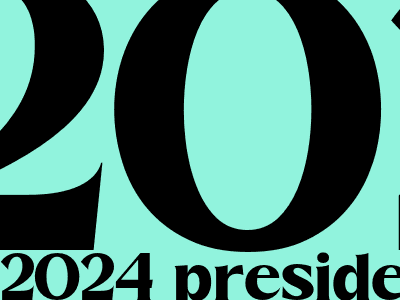
Third-Party Presidential Candidates' Impact on the 2024 Election
A Deep Dive into the Potential Influence and Historical Context
Introduction
As the 2024 presidential election approaches, the potential role of third-party candidates has become a topic of increasing interest and speculation. Historically, third-party candidates have had a limited impact on the outcome of presidential elections, but there are signs that this could change in 2024.
Historical Context
In the past, third-party candidates have typically received only a small percentage of the popular vote. For example, in the 2020 election, Libertarian candidate Jo Jorgensen received just 1.2% of the vote, while Green Party candidate Howie Hawkins received 0.4%. However, there have been a few notable exceptions to this trend.
In 1992, independent candidate Ross Perot received 18.9% of the popular vote, which was the highest percentage ever for a third-party candidate. Perot's strong showing was attributed to a number of factors, including voter dissatisfaction with the two major party candidates, Bill Clinton and George H. W. Bush.
Potential Impact in 2024
There are several reasons why third-party candidates could have a greater impact on the 2024 election than in previous years.
- Voter dissatisfaction: There is a growing sense of dissatisfaction among voters with the two major political parties. This dissatisfaction could lead voters to support third-party candidates who offer alternative perspectives and policies.
- Rise of social media: Social media has given third-party candidates a platform to reach voters that they would not have had in the past. This allows them to bypass the traditional media outlets that are often dominated by the two major parties.
- Changing demographics: The American population is becoming more diverse, and this could lead to a greater demand for third-party candidates who represent the interests of minority groups.
Potential Candidates
There are a number of potential third-party candidates who could have a significant impact on the 2024 election.
- Evan McMullin: McMullin is a former CIA officer and Republican who ran as an independent candidate in the 2016 election. He received 21.5% of the vote in Utah, which was the highest percentage for a third-party candidate in any state since 1992.
- Andrew Yang: Yang is a former Democratic presidential candidate who is now running as an independent. He is known for his support of universal basic income and other progressive policies.
- Kanye West: West is a rapper and fashion designer who announced his candidacy for president in 2020. He received 60,000 votes, which was more than any other third-party candidate in that election.
Conclusion
It is still too early to say how much of an impact third-party candidates will have on the 2024 election. However, there are a number of factors that could lead to a greater role for third-party candidates in this election than in previous years.
If you are considering voting for a third-party candidate, it is important to do your research to make sure that they represent your values and priorities. You should also be aware that voting for a third-party candidate could make it more difficult for your preferred candidate to win the election.